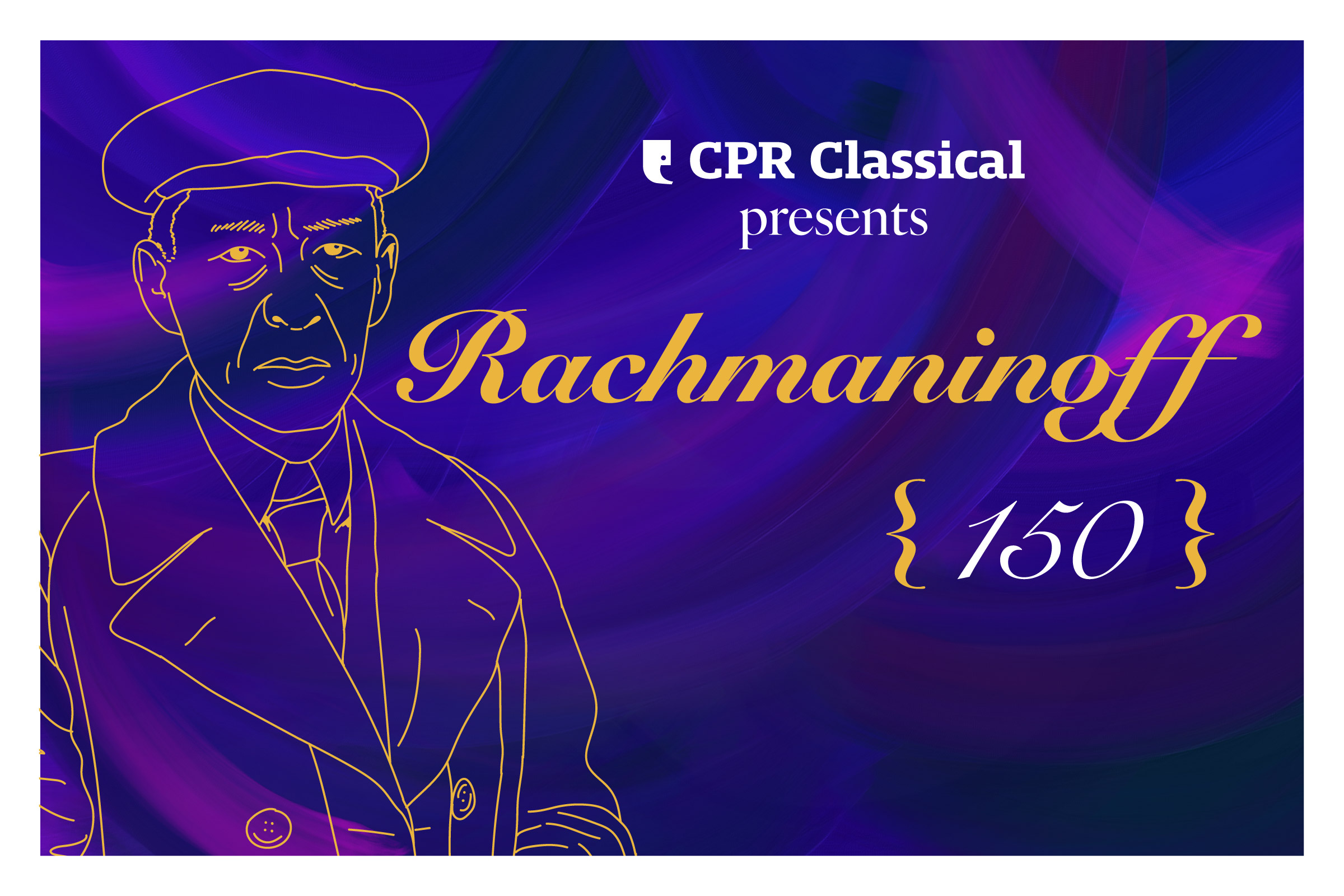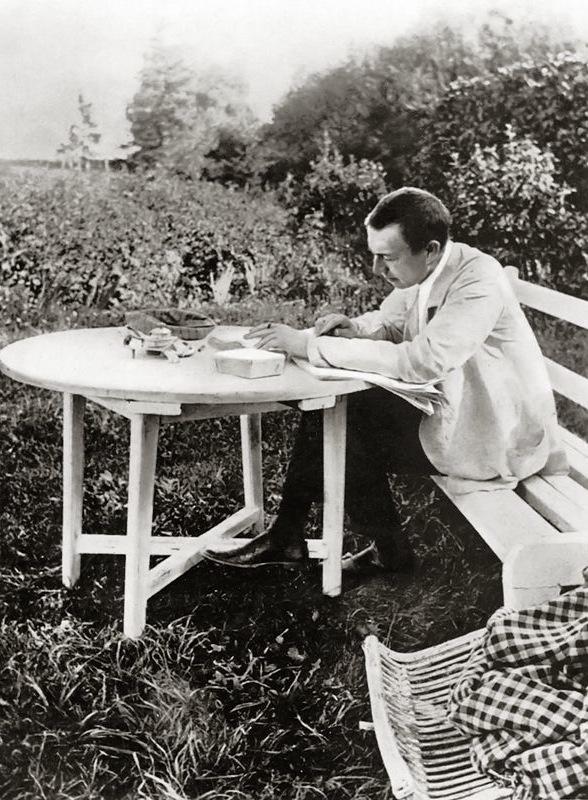
April 1st is Sergei Rachmaninoff's 150th birth anniversary and his legacy is still up for discussion in some circles. At the heart of those discussions is the idea of "what makes a composer great?"
Usually it’s the forward thinking artists that cement a place in history: Beethoven pushed music into the Romantic era, Copland helped define the American sound, Stravinsky caused a riot with his modern ballet “The Rite of Spring.”
Sergei Rachmaninoff was the opposite. His music looked backward to the era of Tchaikovsky, even while music was pushing ahead in a distinctly angular way with the “Second Viennese School” of twelve-tone music theory. He took a lot of flak in his lifetime, and since, for being stuck in the past. Just a decade after his death in 1943, the Grove Dictionary of Music dissed him by saying, “The enormous popular success some few of Rachmaninov’s work had in his lifetime is not likely to last, and musicians never regarded them with much favour.”
But here in the 21st century it’s Rachmaninoff’s music, not the changemakers of the 20th century, that is firmly cemented in listeners' hearts. His music is steeped in nostalgia and romance, and audiences can’t get enough of it.
It’s just a shame there’s not more of it to love. But there’s a reason for that.
The Russian Revolution was life-altering for Rachmaninoff, who had lived a comfortable existence in Russia until then. He was born into wealth (although his father squandered most of that wealth) and later married into an aristocratic, wealthy family. Most of his major works were composed in Russia: his Symphony #2, the Piano Concertos #2 and #3 and the All Night Vigil. His favorite place to write was his summer home in Ivanovka.

But that wealth made him a target during the Bolshevik Revolution. Despite putting much of his earnings into his beloved Ivanovka estate, it was confiscated by the revolutionaries and burned to the ground. He and his young family took shelter in their Moscow apartment, where Rachmaninoff kept guard at night. A chance offer for a concert tour in Scandinavia provided them the opportunity to leave Russia.
The Rachmaninoffs took a train to the Finnish border, and then crossed into Finland in an open sleigh on Christmas Eve, 1917, with only the things they could carry in their suitcases including a few musical scores. They never returned to Russia.
Broke and needing an immediate income for his family, Rachmaninoff decided performing would be a more lucrative career than conducting or composing. After a few months of touring in Europe, his family arrived in New York City, where they immediately caught the Spanish Flu of 1918. Against his doctor's orders, Rachmaninoff left his sick bed to go out on the road to perform.

Rachmaninoff spent his next 25 years as a celebrated concert pianist. He’s the rare musician who had success as a composer, conductor and performer, but he said it was hard for him to concentrate on more than one specialty at a time. And so in his final 25 years, he only composed four major works, including "Rhapsody on a Theme of Paganini" and the "Symphonic Dances."
Lack of time was a major obstacle in composing, but likely so was homesickness. Rachmaninoff once said, "I left behind my desire to compose: losing my country, I lost myself also.”
Rachmaninoff knew his music was from a bygone era and it didn't bother him in the least. He once said, “The only thing I try to do when I compose music is to make it express directly and simply what is in my heart."
As for trying to be a changemaker? He had something to say about that as well. “The new kind of music seems to create not from the heart but from the head. Its composers think rather than feel. They have not the capacity to make their works exalt - they meditate, protest, analyze, reason, calculate and brood, but they do not exalt.”
Sergei Rachmaninoff's 150th birth anniversary is Saturday, April 1. Listen to CPR Classical starting at 2 p.m. for an afternoon of Rachmaninoff favorites.
Want to know more about Rachmaninoff's fascinating life? Listen to the Great Composers Podcast with host Karla Walker and conductor Scott O'Neil.
Hear CPR Classical by clicking “Listen Live” at the top of this website, or download the Colorado Public Radio app. Listen on your radio to CPR Classical at 88.1 FM in Denver, at radio signals around Colorado. You can also tell your smart speaker to “Play CPR Classical."









